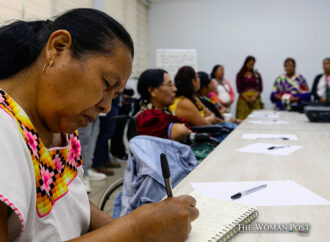Experiences in various countries show that better care policies promote responsible parenthood, with effects on more equitable societies.
The world's population is growing rapidly, with over 300k births happening every day. However, the choice to have children is now a topic of intense debate. Some people decide not to have children due to concerns about the climate crisis or personal circumstances, while others have a strong desire or feel a sense of obligation to become parents. Amid these debates, parenthood demands other rights; the concept of protection is crucial, covering the entire journey of pregnancy and caregiving. What can parents or future parents expect in terms of maternity, paternity, parental, and home care leave policies around the world?.
Read more content like this at: thewomanpost.com
Becoming a parent entails inherent physical and emotional vulnerability, making it imperative for employers, governments, and society as a whole to prioritize their well-being. In traditional patriarchal family dynamics, where women serve as mothers and primary caregivers, it becomes crucial to ensure that they have adequate time to recover from childbirth and embrace a dignified breastfeeding period. For women, equal access to employment must be guaranteed, eliminating any form of discrimination related to childbirth and ensuring a stable income for the family's sustenance. The right to establish a family under conditions of economic security is essential and must be safeguarded.
On an international scale, the International Labour Organization (ILO) has established guidelines for maternity protection as an essential labour standard. However, this international Maternity Protection Convention, formulated in the 2000s, requires updates and reforms. The current provisions only stipulate a minimum of 14 weeks of leave, which falls short of addressing the evolving needs of parents. The current convention was preceded by one established in 1952, where governments should guarantee a minimum of 12 weeks. There were advances from 1952 to 2000, but a strong governance around public policies to ensure economic security for maternity, paternity, and home care in most countries has not yet been built.
You can also read Gender equality is an opportunity for companies
To this day, the Maternity Protection Convention has been ratified by only 43 countries, mainly in Europe (24), followed by Africa (9), Americas (7) and Asia (3). Bulgaria, Greece, and the UK are known for offering some of the longest maternity leave durations. The last countries that ratified the convention were Antigua and Barbuda, El Salvador, Panama, and Germany. Although they follow the ILO guidelines, leave times and remuneration rates vary across all countries. According to the OECD, on average when comparing the OECD countries, mothers are entitled to just under 19 weeks of paid maternity leave around childbirth. Most of these countries provide payments that replace over 50% of previous earnings, with 17 OECD countries offering a mother on average earnings full compensation across maternity leave. The main exception is the United States, which is the only OECD country to offer no statutory entitlement to paid leave on a national basis.
Unresolved issues
There are additional unresolved issues that require prompt attention. For example, ensuring the maternity and paternity rights of individuals working in informal sectors, which comprise more than 50% of the population in Latin America, for example. If we compare it to people formalized within the labour market, there is a noticeable gap. Employees of private companies sometimes benefit from better maternity and paternity policies, including additional leave times, guarantees of fair pay and remote work possibilities. However, despite private actors attempting to compensate for what governments cannot do, there is still a long way to go. Many employees choose not to take annual leave vacations so they can save that time to be with their newborns.
As Amy Westervelt stated, "we expect women to work as if they had no children and raise their children as if they did not work." It is imperative to establish improved national care systems that offer longer maternity leaves and mandatory paternity leaves that are on par with maternity leaves. This should be accompanied by public spending on childcare and early education, public spending on family benefits and family-friendly workplace practices. Furthermore, inclusive policies must be implemented to safeguard the rights of parents in cases of adoption or LGBT parenting, ensuring equal treatment and support for all.

























Leave a Comment
Your email address will not be published. Required fields are marked with *